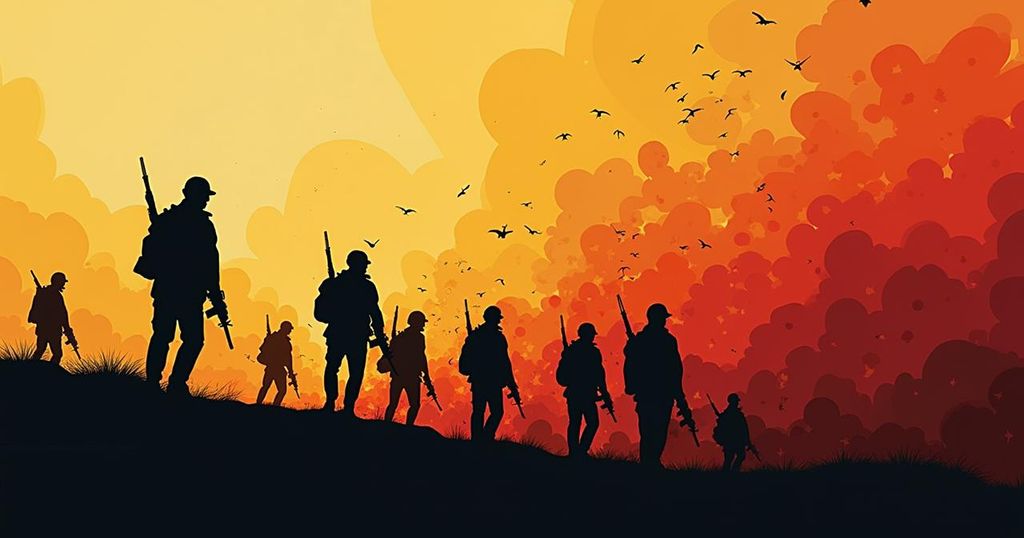Understanding the Israel-Hezbollah-Hamas-Iran Conflict: A Geopolitical Perspective
The current conflict involving Israel, Hezbollah, Hamas, and Iran highlights a significant shift in global political dynamics, representing a struggle between an emerging coalition of inclusion favoring American-led collaboration and a coalition of resistance led by authoritarian regimes. The outcomes of this struggle could redefine alliances and the balance of power in several regions, including the Middle East and Eastern Europe.
The recent conflict surrounding Israel, Hezbollah, Hamas, and Iran represents a pivotal moment in contemporary international relations, indicative of a broader confrontation that has supplanted the previous Cold War paradigm. In the wake of the Hamas attack on Israel on October 7, it becomes apparent that we have entered a post-post-Cold War era—highlighted by a fragmented global landscape characterized by two opposing coalitions. On one side lies an emerging coalition of inclusion, consisting of various nations, not universally democratic, that aspire towards an American-led alliance aimed at fostering economic integration and collaboration in tackling pressing global issues such as climate change. Conversely, the coalition of resistance, spearheaded by authoritarian regimes including Russia, Iran, and North Korea, operates in opposition to this inclusive framework, using hostility towards the United States-led world as a means to justify their own militarization and repression. This geopolitical rivalry extends to China’s positioning, as it seeks to navigate the benefits of engagement with the coalition of inclusion while simultaneously aligning with the authoritarian inclinations of the coalition of resistance. To contextualize the ongoing conflicts in Ukraine, Gaza, and Lebanon is to understand them as battlegrounds in this overarching struggle. Ukraine’s quest for alignment with European structures exemplifies the fight for inclusion, as it strives to liberate itself from Russian hegemony, whereas Israel and Saudi Arabia’s endeavors to normalize relations amplify the coalition of inclusion within the Middle East. The Russian regime’s efforts to thwart Ukraine’s Western ambitions reflect a desperate attempt to stave off complete isolation, paralleling Iran’s and its proxies’ actions to prevent Israel from establishing ties with Saudi Arabia. The normalization of relations between Israel and Saudi Arabia would profoundly extend the coalition of inclusion in the region, significantly isolating Iran and its militant affiliates such as Hezbollah, the Houthis, and Shiite militias in Iraq, which have been detrimental to their respective nations’ stability.
The Israel-Hezbollah-Hamas-Iran conflict is situated within a broader geopolitical context where various state actors engage in a struggle that reflects deep-rooted ideological and political divisions. Following the Cold War, international relations have shifted towards a more nuanced struggle characterized by the evolving dynamics between nations seeking inclusion in a global order versus those embracing resistance to this order. This backdrop informs the actions of key global players such as the United States, Russia, China, and authoritarian regimes in the Middle East, framing their geopolitical maneuvers as efforts to maintain power or expand influence in a multipolar world.
In conclusion, the Israel-Hezbollah-Hamas-Iran conflict serves as a critical flashpoint in the ongoing global struggle between the coalition of inclusion, aspiring for economic integration and collaboration, and the coalition of resistance, characterized by authoritarian governance and militarism. Understanding the implications of these dynamics is essential for comprehending the potential fallout of this conflict not only in the region but also across the world.
Original Source: www.nytimes.com




Post Comment